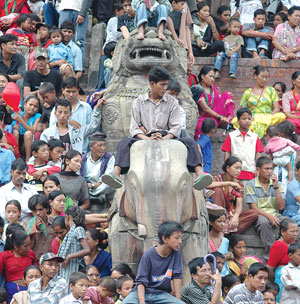|
|
An April 2007 poll conducted by the Nepali team of the South Asia Democracy Study Group in collaboration with International Institute for Democracy and Electoral Assistance (IDEA) explores the state of democracy in Nepal. The first round of the survey was conducted in 2004.
The survey shows that the 250-year-old Shah dynasty is likely to become a victim of the popular aspiration for change- 59 percent of respondents chose a republic over retaining the monarchy. In the 2004 survey, only 15 percent did so. And this increase is not because of the royal massacre, the royal takeovers, or the tarnished image of royalty, but on principle. Two-thirds of the republican respondents wanted a government 'ruled by the people' or believed 'monarchy is not necessary in the modern era'.
People buy the Maoists' agenda, but trust other state and political institutions more.
Two-thirds of the respondents 'believe' the changing ideological position of the CPN-M to varying degrees. This change in popular perception is reflected in responses to other questions too. Only 7 percent of those surveyed consider the Maoists as a source of insecurity, compared with 42 percent in 2004. The CPN-M topped the list of those sympathetic to the cause of excluded groups. Respondents were on board with the Maoist proposals to integrate the two armies (74 percent) and impose a land ceiling (61 percent).
Still, Nepalis trust the other seven political institutions more. Of the 934 respondents (from a total of 4,089) who identified themselves as close to a party, only 15 percent named the CPN-M, while 34 percent allied themselves with the NC and 32 percent with the UML. Over half said they would either decide later for whom they would vote or did not want to tell.
Popular aspirations for change have been manifesting in different forms. The janajati and madhesi movements appear to be genuinely mass-based. Respondents identifying with just national identity dropped sharply to 43 percent from 59 percent in 2004. Instead, there has been a shift in favour of equal weight to both national and ethnic or regional identity, from 19 percent in 2004 to 31.5 percent. It's different in the tarai, though. Across caste, ethnicity, and religion, madhesis favoured an ethnic or regional identity (30 percent on average) over a national identity (18 percent). The figures were reversed in 2004. But identity politics do not threaten national integration-over 90 percent of respondents, including madhesis, said they 'are proud' to belong of their own community and also Nepali.
The 'New Nepal' project aims to make fundamental changes to the state-secularism, federalism, and multilingualism. The survey discovered a paradox: support for a secular state, bi/multi-language policy, and federalism has increased by 6. 4 and 9.5 percent respectively since 2004. Yet 61 percent of respondents favoured retaining the Hindu state and a little less than that wanted a unitary form of government. A bi/multi-language policy, however, is endorsed by over half the respondents.
Hill origin respondents wanted a status quo on language and the nature of government, while most madhesis wanted alternatives. Hill ethnic groups and Muslims wanted a secular state, in contrast to a majority of caste and dalit hill and tarai groups.
All these issues will be settled by the new constitution. A large majority of the respondents (62 percent) felt the CA elections could be held in a safe atmosphere and 84 percent said international supervision would ensure free and fair elections. The surveyed citizens credited the eight-party alliance and resolution of the conflict for the improved security environment.
These are the messages from the findings of the State of Democracy 2007 survey:
. Civic education is essential, given the high percentage of 'don't know' responses on key issues such as the meaning of democracy and what the CA is
. Not politics, but economic hardship is at the top of the list of problems and challenges facing Nepalis (70 percent)
. Uncivil agitation-bandas and chakka jams-are not the way to get people's support
. People expect results from the April Uprising and CA elections, notably peace though political reconciliation and stability through governance
. The democratic transition must be linked to the voices of the people.
Krishna Hachhethu is country coordinator of the South Asia Democracy Study Network, affiliated with CNAS at Tribhuvan University, and associated with NCCS.
This survey was conducted in collaboration with International Institute for Democracy and Electoral Assistance (IDEA).
How the survey was done
The survey was conducted from 28 March to 27 April 2007 in 162 polling stations (23 in urban and 139 in rural areas) spread over 41 parliamentary constituencies in 40 districts. A structured questionnaire was administered through face-to-face interviews with a nationwide sample of 4,089 respondents. The gender, rural/urban, and caste/ethnic make up of the sample size largely, if not absolutely, reflected the characteristics of the national population.
All figures are in percent
How satisfied are you with the functioning of the government since Jana Andolan II?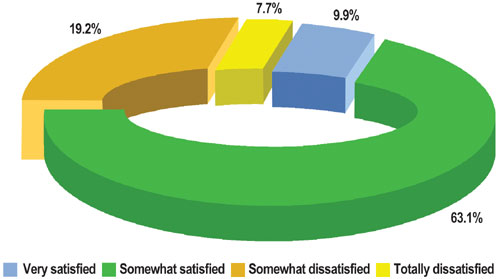
What is the best way to address demands of backward communities?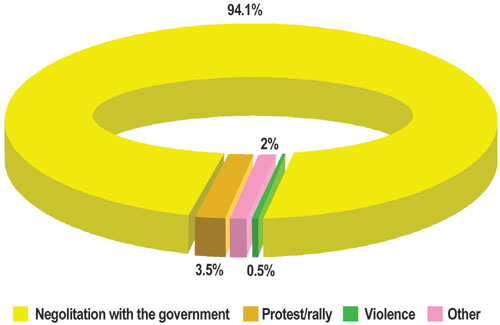
What do you think is the main cause for marginalisation/backwardness?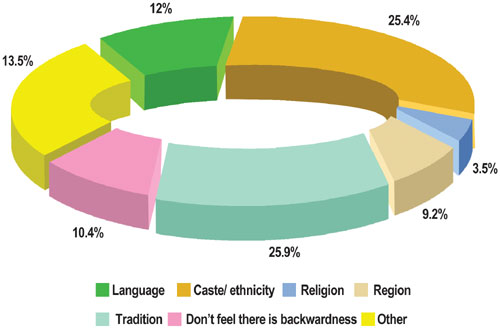
What are the two major problems facing the country today? (percentage based on multiple responses)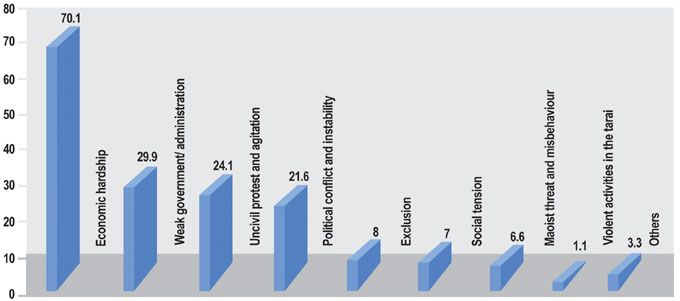
How would you like to identify yourself?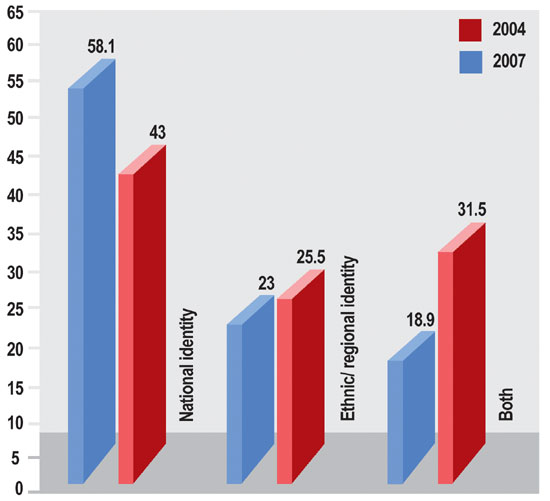
How familiar are you with the following?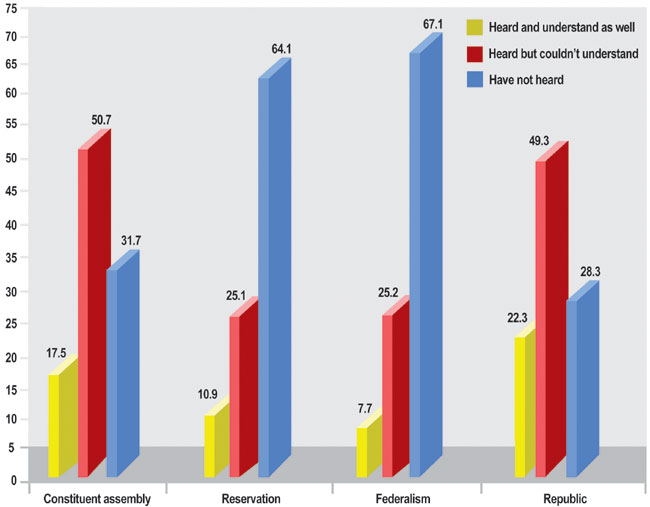
To what extent do you trust the following political party leaders?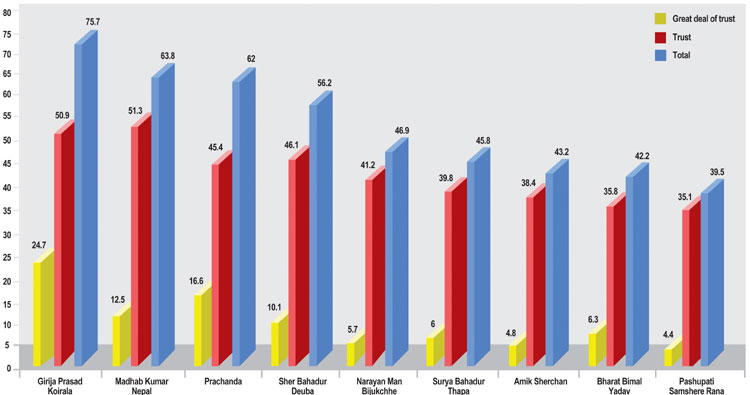
Related Articles:
. Still undecided
. Big questions
. What we think
. Vox populi

